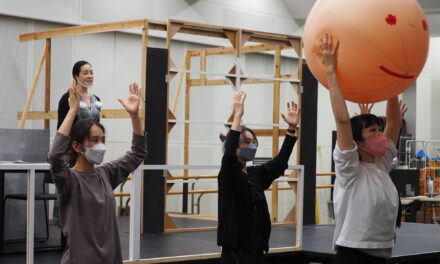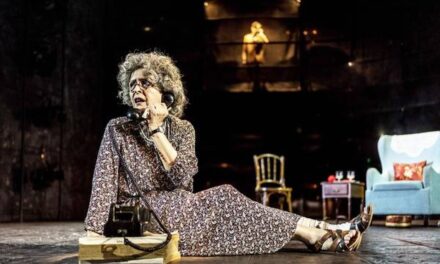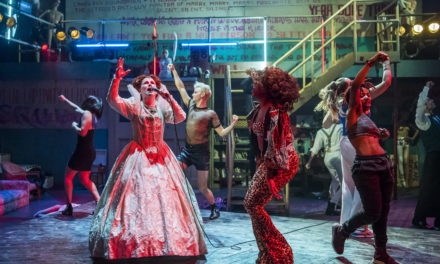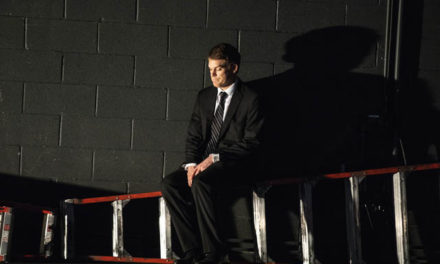Larry Kramer’s The Normal Heart is a play fueled by anger.
Anger at the political, medical and media establishment of the day for its reluctance to accept the reality of a mounting AIDS epidemic.
Back in 1985, Kramer made enemies on all sides with a play that is an only slightly fictionalized account of his real-life efforts in New York City to awaken the prevailing culture — including a gay, closeted mayor — to the reality of the frightening plague enveloping it. And because it takes no prisoners in its indictment, it remains perhaps the most unsettling play to emerge from the AIDS era
Kramer’s dramatic alter ego in the play is an outspoken crusader named Ned Weeks — and Shaun Toohey’s performance in this role supplies ample reason to take in TotoToo Theatre’s sometimes uneven revival of a seminal late 20th Century stage classic.
Ned is perhaps the most volcanic, confrontational character to blast his way through a play since John Osborne’s Jimmy Porter pulverized the British stage in Look Back In Anger in 1956. Toohey doesn’t soften the edges here: his Ned is a rude, strident, hectoring, arrogant pain in the neck — a militant crusader so ready to march to his own drummer when the rest of the world seems incapable of agreeing with him that his abrasive personality may well destroy his cause. But Toohey is a good enough actor to bring nuance to Ned’s fault lines and bring out the tenderness and vulnerability beneath the rage. It’s a vulnerability that will put Ned to a terrible test when, for the first time in a turbulent life, he finds himself in a meaningful, caring relationship with a New York Times reporter who will, all too soon, start developing those terrifying, tell-tale skin lesions.
What we do get from this performance is a flaming moral passion. But unfortunately there’s also the sense that Toohey, who is listed as co-director with Jim McNabb, is working extra hard to prop up the production as well as some fellow cast members.
There are times when the dramatic momentum falters, when lines are botched, when some characterizations fail to emerge with truth. There are signs of cast members struggling to connect, sometimes with an excess of mannerisms, and this can force other actors, particularly Toohey, to keep trying to re-establish rhythm and tone. A floundering tentativeness in performance ill serves a play like this. And given that this is a piece in which people frequently embrace each other, must such moments always seem so awkwardly staged?
Yet one can still find fine things — the grace and stoicism inherent in Barry Daley’s performance as Ned’s doomed lover; the bundle of conflicts that define Jon Payne’s excellent performance as Ned’s very straight brother; the fury with which Lorilee Holloway, as a dedicated doctor, assails the complacency of a board of blinkered bureaucrats; the neatness of David Whiteman’s cameo as a prissy gatekeeper to the mayor of New York; Sean Brennan as a closeted bank executive trapped between his own latent conservatism and his desire to serve the gay community with honour.
The play remains outstanding and timely. It may be polemic but it demands attention. And there is certainly enough of merit in this revival to warrant a trip to the Gladstone.
This article was orginaly published on “Captial Critics’ Circle”. Reposted with permission. Read the original article
This post was written by the author in their personal capacity.The opinions expressed in this article are the author’s own and do not reflect the view of The Theatre Times, their staff or collaborators.
This post was written by Jamie Portman.
The views expressed here belong to the author and do not necessarily reflect our views and opinions.


















